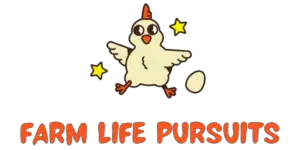Ducks are beneficial for the environment because they help control insect populations by feeding on insects and larvae. Additionally, ducks play a role in maintaining wetland ecosystems by aerating the soil and dispersing seeds through their movements. Their droppings also serve as natural fertilizers, enriching the soil and promoting plant growth. Overall, ducks contribute to the balance and health of their habitats, making them valuable environmental allies.
Ducks are more than just adorable pond visitors – they’re essential for our environment.
Join me as we uncover how these feathered friends contribute to natural pest control, soil health, and biodiversity, shaping a sustainable future for all.
Table of Contents
Natural Pest Control – How Ducks Help Maintain Balance in the Ecosystem
As we delve deeper into the role of ducks in the environment, one significant benefit emerges – natural pest control.
Ducks are natural foragers, and they play a crucial role in maintaining balance within the ecosystem by controlling pest populations.
Let’s explore how these feathered marvels contribute to a healthier environment through their pest-control abilities.
Pest Control Expertise of Ducks
Ducks are not your average pond dwellers; they are adept at controlling various pest populations that can harm crops and vegetation.
These ingenious creatures have a voracious appetite for insects like mosquitoes, flies, beetles, and caterpillars.
For instance, a single duck can consume up to 200 locusts in a day, making them efficient pest controllers.
By feeding on these pests, ducks help prevent infestations that can damage agricultural crops and forests.
Reduction of Chemical Pesticide Usage
By harnessing the natural pest control capabilities of ducks, farmers and landowners can reduce their reliance on chemical pesticides.
According to a study published in the Journal of Applied Ecology, integrating ducks into rice paddies led to a significant decrease in the need for chemical insecticides.
This not only benefits the environment by reducing harmful chemical runoff but also promotes sustainable agricultural practices.
Case Study: Ducks in Rice Fields
In regions like Asia, ducks are commonly used in rice paddies to control pests and improve crop yields.
An interesting case study conducted by the International Journal of Pest Management found that ducks grazing in rice fields effectively reduced pest populations, leading to higher rice productivity.
Farmers who integrated ducks into their agricultural practices reported lower pest damage and increased harvest outcomes, illustrating the positive impact of ducks on pest control.
Ecosystem Harmony Through Duck Grazing
Beyond agricultural settings, ducks also play a vital role in maintaining ecosystem harmony by grazing on aquatic plants and algae.
Excessive growth of aquatic vegetation can disrupt aquatic ecosystems and lead to oxygen depletion in water bodies.
Ducks help address this issue by consuming excess vegetation, preventing imbalances in aquatic ecosystems.
By doing so, they contribute to the overall health and sustainability of wetland habitats.
ducks serve as nature’s pest control experts, safeguarding crops, forests, and wetlands from detrimental pest infestations.
Their innate ability to forage for insects and regulate pest populations showcases the invaluable role they play in preserving biodiversity and promoting environmental sustainability.
By integrating ducks into various ecosystems, we can harness their unique pest control capabilities to create a healthier and more balanced environment for all living organisms.
Soil Health Boost – Exploring the Impact of Duck Droppings on Soil Quality
When we think about the environmental benefits of ducks, we often overlook one crucial aspect – their contribution to soil health.
Duck droppings may not be the most glamorous topic, but their impact on soil quality is undeniable.
Nutrient-Rich Fertilization
Duck droppings are a powerhouse of nutrients essential for plant growth.
Rich in nitrogen, phosphorus, and potassium, duck manure serves as a natural fertilizer that can significantly enhance soil fertility.
According to a study by the University of Minnesota Extension, duck manure has nitrogen levels that rival commercial fertilizers, making it a sustainable and cost-effective option for farmers.
Improved Soil Structure
In addition to providing essential nutrients, duck droppings help improve soil structure.
The organic matter in duck manure acts as a soil conditioner, enhancing soil aeration and water retention.
This not only benefits plant growth but also contributes to erosion control and overall soil health.
Research conducted by the Department of Agriculture and Food Western Australia found that incorporating duck manure into soil led to increased soil aggregation and improved water infiltration rates.
Enhanced Microbial Activity
Duck droppings are teeming with beneficial microorganisms that play a vital role in soil health.
These microorganisms, such as bacteria and fungi, break down organic matter in the soil, releasing nutrients and making them more accessible to plants.
A case study from the Sustainable Agriculture Research and Education program demonstrated that fields where ducks were raised showed increased microbial diversity and activity compared to control plots, leading to improved overall soil health.
the impact of duck droppings on soil quality should not be underestimated.
From nutrient-rich fertilization to improved soil structure and enhanced microbial activity, ducks play a crucial role in promoting healthy and sustainable soil ecosystems.
So, the next time you see a duck waddling by, remember that they are not just cute quackers – they are also environmental superheroes contributing to the well-being of our soil.
By incorporating these findings into our agricultural practices, we can harness the power of duck droppings to create healthier soils, more bountiful harvests, and a greener planet for future generations.
Biodiversity Support – Ducks as Key Players in Promoting Variety in Wetland Habitats
Ducks are not just adorable creatures paddling on the surface of a lake; they play a crucial role in supporting biodiversity within wetland habitats.
Let’s delve into how these feathered friends are key players in promoting variety in these ecosystems.
1. Habitat Modification
Ducks are natural engineers of their environment.
Their foraging behavior, like dabbling for food in the water, helps to churn up the sediment, aerating the soil and creating ideal conditions for wetland plant growth.
This modification of the habitat not only benefits ducks but also provides a thriving environment for a diverse range of plant species.
2. Seed Dispersal
As ducks move from one body of water to another, they inadvertently carry seeds with them on their feathers and feet.
These seeds are then dispersed in different wetland areas, contributing to the spread of vegetation and the creation of interconnected habitats.
This seed dispersal mechanism plays a vital role in the ecological succession of wetlands.
3. Nutrient Recycling
Ducks are not just consumers in the wetland food chain; they also act as nutrient recyclers.
Through their droppings, they introduce vital nutrients like nitrogen and phosphorus back into the ecosystem.
These nutrients enrich the soil, promoting the growth of vegetation and sustaining the delicate balance of the wetland environment.
In Summary
ducks act as essential agents of change in wetland habitats.
Their habitat modification activities, seed dispersal behavior, and nutrient recycling contribute significantly to the promotion of biodiversity within these ecosystems.
By understanding and appreciating the role of ducks in wetlands, we can better grasp the intricate web of interactions that support the variety of life in these vital environments.
Ducks: The Sustainable Solution in Agriculture
In the realm of sustainable agriculture, ducks emerge as unlikely yet highly effective heroes, contributing significantly to reducing the need for harmful chemical pesticides.
Let’s dive into how the presence of ducks revolutionizes farming practices and benefits the environment.
Natural Pest Control Partners
Picture this: a vibrant ecosystem where ducks waddle through fields, actively foraging for insects and pests.
Ducks have a voracious appetite for common agricultural pests like snails, slugs, and insect larvae.
By integrating ducks into agricultural settings, farmers can harness their innate pest control abilities, reducing the reliance on toxic chemical pesticides.
The Numbers Speak Volumes
Research by the University of California, Davis, showcases the profound impact of ducks on pest control.
A single duck, on average, can consume up to 200 pests daily.
This organic pest management strategy not only minimizes pesticide usage but also leads to healthier soil and crops.
Case in Point: The Rice-Duck Farming System
In regions like Asia, the innovative practice of rice-duck farming has gained traction for its sustainability benefits.
Farmers strategically release ducks into rice paddies after the rice seedlings are established.
As the ducks traverse the fields, they feast on insects and weeds, acting as natural weeders and pest controllers.
A Win-Win for Farmers and the Environment
By embracing ducks as allies in agriculture, farmers can achieve a harmonious balance between pest management and environmental preservation.
This symbiotic relationship between ducks and crops fosters a healthier ecosystem, paving the way for sustainable farming practices with long-term benefits.
In essence, ducks represent more than just farmyard companions – they embody a natural, eco-friendly approach to pest control in agriculture.
Next time you spot a duck gracefully gliding across a pond, remember the vital role these feathered friends play in cultivating a greener, more sustainable future for our planet.
Final Thoughts
The humble duck emerges as a mighty force in the realm of environmental conservation.
From keeping pest populations in check to enriching soil health with their droppings, these feathered friends play a crucial role in maintaining ecosystem harmony.
By supporting wetland habitats and serving as a vital link in the food chain, ducks champion biodiversity and resilience in nature.
As we reflect on the essential contributions of ducks to our environment, let’s not overlook the power we hold as individuals to protect and preserve these natural allies.
Whether it’s choosing organic produce to reduce pesticide reliance or supporting wetland conservation efforts, every action we take can make a difference in safeguarding the valuable roles ducks play in our ecosystem.
So, let’s take this newfound knowledge and turn it into action.
Let’s honor the unsung heroes of our environment, our duck companions, by advocating for sustainable practices and promoting coexistence with nature.
Together, we can ensure a brighter, more balanced future for all species that call our planet home.

